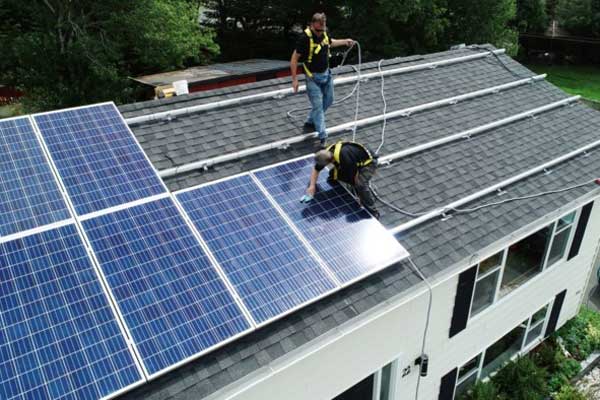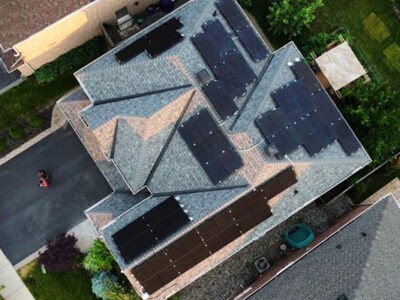Nova Scotia has witnessed a remarkable surge in solar power adoption, with 2,000 installations of solar panels in 2023 alone.
This surge brings the total number of solar projects in the province to approximately 8,000, marking a significant increase from just 200 installations in 2018. This growth reflects a major stride toward a greener and more sustainable future, aligning well with Canada’s ambitious clean energy targets.
Dave Brushett and the Solar Energy Boom
Dave Brushett, the chair of Solar Nova Scotia, a non-profit organization dedicated to promoting solar energy usage, recently discussed the industry’s growth on “Information Morning Cape Breton” with host Steve Sutherland.
Brushett highlighted the remarkable growth in the solar sector, emphasizing that Nova Scotia now boasts hundreds of individuals employed in the industry. Most of the activity has been in the residential sector, owing to a cap on commercial solar installations, which was lifted recently.
Brushett cited the example of Halifax Regional Municipality installing a one-megawatt solar facility on their new bus depot, a project that was previously unfeasible under the 100-kilowatt cap.
Incentives and Challenges in the Solar Sector
Brushett also addressed incentives, mentioning the Canada Greener Homes Program, a federal initiative offering homeowners a $40,000 interest-free loan repayable over ten years and a grant of up to $5,000. However, he noted that new registrations for the grant would end after March of next year.
While the interest-free loan is expected to continue, the federal government is reviewing the program’s results with potential adjustments in mind.
The Greener Homes Program, initiated two years ago with a planned duration of seven years, can provide up to $5,000 in rebates for energy efficiency upgrades.
The recent addition of an interest-free loan up to $40,000 aims to facilitate these upgrades. Due to its popularity, the allocated funds are depleting faster than anticipated, with planned rebate funding expected to run out by March 2024. This has prompted many homeowners to take advantage of the remaining incentives before they expire.
Sustainability and Future Prospects
Regarding the sustainability of the solar program amidst changes in Nova Scotia Power’s grid access charges, Brushett clarified that the Electricity Act prohibits Nova Scotia Power from charging for grid access. Despite being unique in this aspect, Brushett expressed confidence in the program’s sustainability, given the still-low penetration of solar in Nova Scotia.
Looking ahead, Brushett discussed the potential growth in batteries.
He foresees batteries as a promising option for homeowners to store excess energy and address issues with net metering. Although current battery systems can be expensive, Brushett anticipated a significant cost reduction by 2030, making them a more viable option for homeowners.
Nova Scotia’s success in residential solar installations reflects a significant step toward a greener and more sustainable future.
The widespread adoption of solar is crucial in achieving Canada’s energy goals, and Nova Scotia’s progress could inspire other provinces to explore new ways to support homeowners in adopting solar, such as targeted rebate programs or tax incentives.














Comments